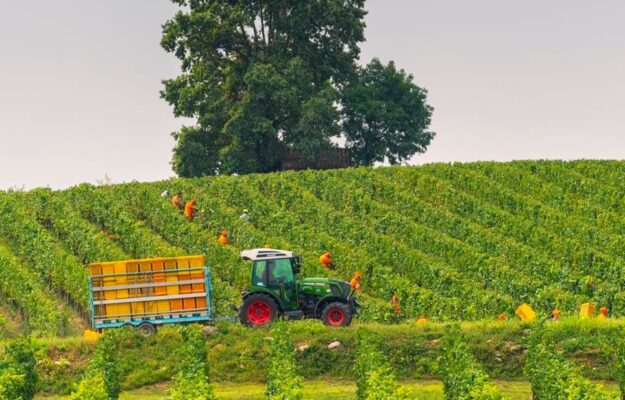The European wine sector represents one of the strengths of the Common Agricultural Policy (CAP), including viticulture, it is an exclusive competence of the European Union. Protected Geographical Indications (PGI) and Protected Designations of Origin (PDO) are an important part of this policy as they create a strong link between wine, territory, culture, and local traditions, promoting quality, exports, and food and wine tourism, and the new regulation - recently approved by the European Parliament - strengthens protection for over 1,610 PDO and PGI wines, of which just under a third are produced in Italy. Furthermore, beginning in December 2023, all wines sold in European Union markets will be required to carry new label information, including nutritional values, and it is, therefore, necessary to ensure a consistent approach that ensures the proper functioning of the European market and the sector’s competitiveness. All of these topics will be discussed at the “Wine States General” a discussion between representatives of the government, EU institutions, regions, and stakeholders about competitiveness, exports, sustainability, and tourism in the sector, which will take place tomorrow in the Sala della Protomoteca of the Campidoglio in Rome, with four in-depth panels, beginning with a speech by the Minister of Agriculture and Food Sovereignty, Francesco Lollobrigida.
The panel “The EU’s Policies and Regulatory Framework for the Wine Sector” will focus on the regulatory framework for sustainability, including the reduction of the environmental impact of wine production (weight reduction, reuse, recycling of glass, and new labelling indicating the correct disposal process, as well as packaging standardisation); the new PGI, PDO, and DOCG regulations; and the new PGI, PDO, and DOCG regulations; the new rules on labelling and the Irish case; and the new community programming and related resources, including those allocated by the Pnrr. Discussing it, among others, Herbert Dorfmann, European parliamentarian in the Commission for Agriculture and Rural Development and Rapporteur of the Strategy from Producer to Consumer, Massimiliano Giansanti, president of Confagricoltura, Paolo de Castro, European parliamentarian, Commission for Agriculture and rural development, rapporteur on the Reform of Geographical Indications, Albiera Antinori, president of Gruppo Vini Federvini, Lamberto Frescobaldi, president of the Unione Italiana Vini (Uiv), Ettore Prandini, president of Coldiretti, and Luca Rigotti, coordinator of the wine sector of the Alleanza delle Cooperative Italiane and president of the Cogeca Settore Vino Working Group. The second panel, on the other hand, is dedicated to “Export, international agreements, promotion, and internationalization”, with a focus on association agreements and the creation of new export opportunities, wine as a driver of Made in Italy and the Italian product, and internationalisation of the wine supply chain, as well as a financial and technical incentive system. Among the speeches, are those of Antonio Rallo, president of the Sicilia Doc Consortium, Luca Giavi, director of the Prosecco Doc Consortium, Albino Armani, president of the Pinot delle Venezie Consortium, Lorenzo Cesconi, president of the Federazione Italiana Vignaioli Indipendenti (Fivi). At the centre of the third panel “Wine and sustainable development”, with the focus on the new regulations regarding sustainable agriculture in the cultivation of vineyards; the relationship between vineyard and solar panel; the investments necessary to support the paths towards sustainability; blockchain and digitalisation, between the present and future of the sustainable wine supply chain; and consumer education, between responsible consumption and territorial identity. Topics explored thoroughly by Ermete Realacci, president of the Symbola Foundation, Riccardo Ricci Curbastro, president of Equalitas, and Carlo Alberto Pratesi, chair of marketing, innovation and sustainability at Roma Tre University, just to name a few. Finally, the fourth panel, “Wine as a driver of Italian experiential food and wine tourism, experiences and stories”, which will delve into topics such as tourism as a driver of territory promotion and development, as well as food and wine traditions; good practices in communicating the wine brand abroad; and wine and the digital communication of wine influencers, in the speeches, among others, of Paolo Cuccia, president of Gambero Rosso, and Riccardo Cotarella, president of AssoEnologi.
Copyright © 2000/2026
Contatti: info@winenews.it
Seguici anche su Twitter: @WineNewsIt
Seguici anche su Facebook: @winenewsit
Questo articolo è tratto dall'archivio di WineNews - Tutti i diritti riservati - Copyright © 2000/2026







































































































































































































